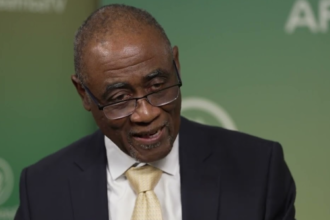By Lamin Guèye
Senou, Mali – Mali has commenced the construction of a major gold refinery in partnership with Russian conglomerate, the Yadran Group, signaling a significant step towards bolstering its control over its vast mineral wealth. The groundbreaking ceremony, held near the capital Bamako on Monday, was attended by Malian military leader General Assimi Goïta and Yadran Group head Irek Salikhov.
General Goïta, who seized power in a 2021 coup, described the project as embodying Mali’s assertion of “economic sovereignty,” ensuring the nation benefits directly from its abundant gold resources. Since coming to power, Goïta has strengthened military and economic ties with Russia, simultaneously diminishing relations with former colonial power France and other Western nations.
This strategic shift aligns with a growing trend in the region, with neighboring Burkina Faso and Niger also gravitating towards Russia following recent overthrows of civilian leadership. This realignment has resulted in Western firms facing increased pressure, exemplified by Mali’s recent decision to place a large gold mine operated by Canadian giant Barrick under state administration, effectively bringing it under government control.
The new refinery, boasting a substantial 200-tonne capacity, will be majority-owned by Mali, with the Yadran Group holding a minority stake. Irek Salikhov hailed the project as a “win-win” for both nations, envisioning it as transforming the region by becoming “a regional center for processing gold extracted not only in Mali, but also in neighboring countries like Burkina Faso.”
While a completion date remains unannounced, General Goïta declared, “It’s a long-awaited dream of the Malian people, and today it’s becoming a reality.” He further emphasized the plant’s significance in enabling Mali to “refine all the gold mined on its soil, ending decades of crude export to foreign refineries.”
The development is particularly significant for Mali, Africa’s second-largest gold producer. Despite its rich mineral resources, a significant portion of the population remains impoverished, 65 years after achieving independence. The establishment of the refinery aims to address this disparity by maximizing the economic benefits derived from its natural resources and retaining more wealth within the country. The success of this project is expected to have a profound impact on Mali’s economy and its relationship with international partners.









